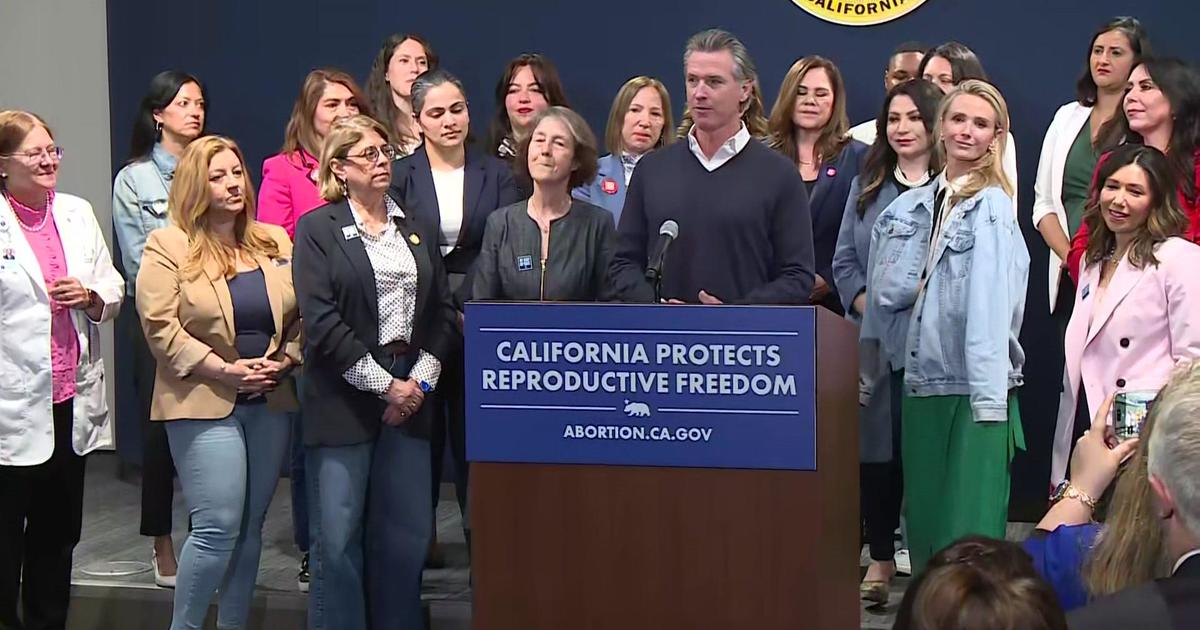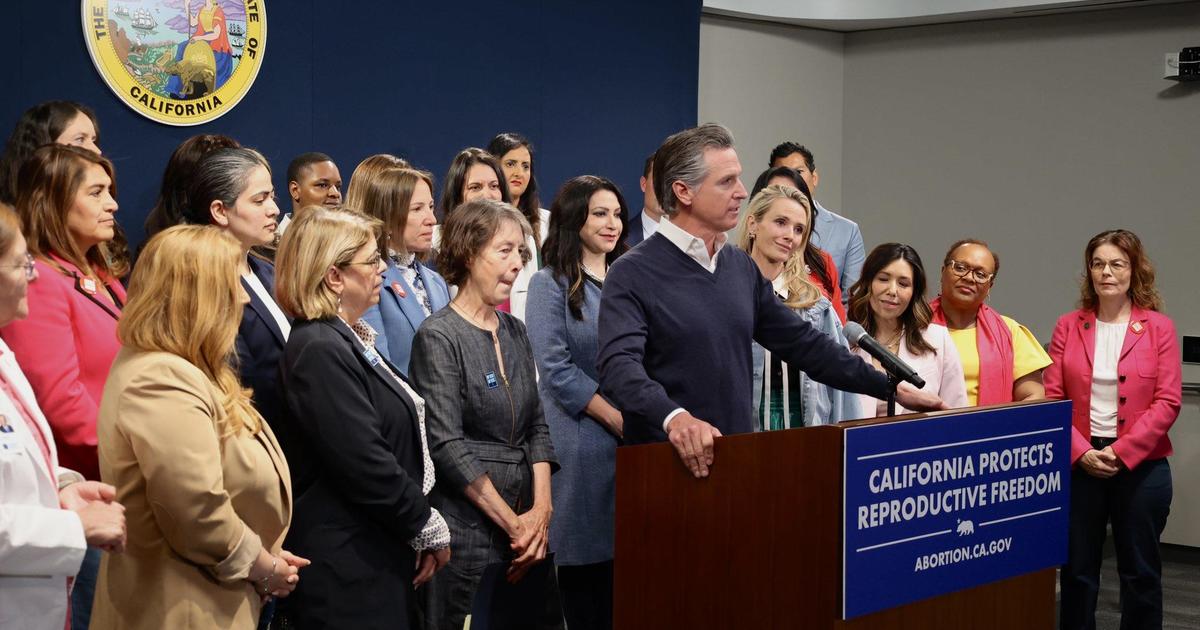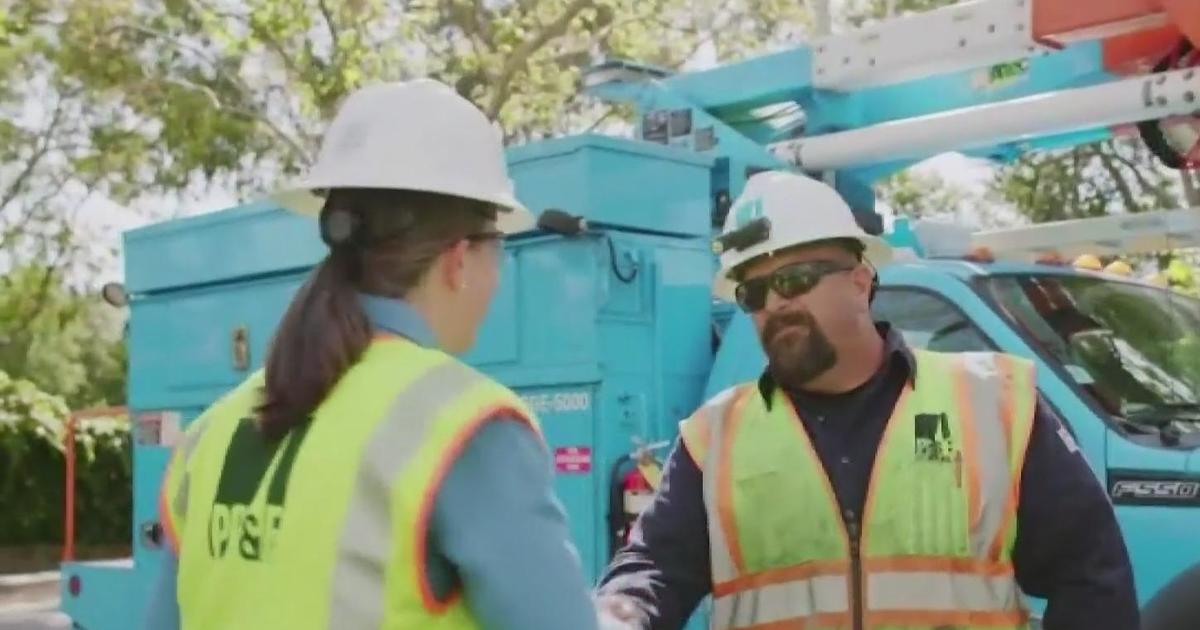Gov. Newsom Signs 7 Laws Aimed At California's Homeless Crisis
SACRAMENTO, Calif. (AP/CBS13) — California Gov. Gavin Newsom signed seven new laws on Wednesday aimed at addressing the state's homelessness crisis, pleading with a skeptical public to have patience as the nation's most wealthy and populous state struggles to keep people off the streets.
Among California's myriad of problems — including wildfires, historic drought and a changing climate impacting them both — homelessness is perhaps the most visible, with tens of thousands of people living in encampments in cities large and small across the state.
"We can't nibble around the edges of the homelessness crisis, we need to implement bold, transformative solutions – investing more money than ever before to get folks off the street and provide the mental health and other services they need to stay off the streets," Gov. Newsom said in a news release Wednesday.
California's homelessness crisis was the top talking point among Newsom's critics prior to the pandemic, a topic Newsom addressed in a big way when he devoted his entire "State of the State" address in 2020 to the issue.
In the past three years, California has spent more than $2.4 billion of state and federal money on a handful of major homelessness programs, with most of that money going to local governments for things like leasing hotels and motels for housing the homeless during the pandemic.
The programs have had success, but have done little to change public perception of the homelessness problem — a fact Newsom acknowledged during a news conference in Los Angeles on Wednesday.
"We live in a situational world where people want to see results immediately," he said. "But when it comes to these issues, it takes years and years to see those results."
California's budget this year includes about $7.4 billion to pay for 30 housing and homelessness programs, according to an analysis by the nonpartisan Legislative Analyst's Office. The budget commits about $12 billion for homelessness programs over the next two years.
Nearly all of that money will go to local governments. But a law Newsom signed on Wednesday will, for the first time, give the state more say over how local governments spend that money. Newsom signed a law authored by Assemblywoman Luz Rivas, a Democrat from Arleta, that creates a new governing body to dole out up to $2 billion in homelessness funding to local governments.
The California Interagency Council on Homelessness, which replaces an existing homelessness council, will include the directors of half a dozen state agencies that must review and approve local governments' plans for spending the money.
"No plan, no money," Newsom said Wednesday. "We're coming in not just with sticks, but with real carrots."
Newsom also signed a law requiring all of the state's 1,037 school districts, including charter schools, to identify all of their homeless students and refer them to services for them and their families.
"In California, there are enough homeless children to fill Dodger Stadium five times," said Rivas, a reference to a 2020 UCLA study. "We have to end that."
Newsom said his administration has identified 100 of what he called the state's "high profile" homeless encampments and has "attached timelines and strategies to begin to clean them up permanently."
He hinted he would announce something soon with Los Angeles's mayor about "that infamous encampment that you all know well." That's a possible reference to Skid Row in Los Angeles, where a federal judge had previously ordered the city and county to find housing for everyone there only to have that ruling overturned on appeal last week.
Newsom also signed a law requiring California to prioritize its share of federal housing money on projects that serve homeless people with chronic health conditions. California is projected to get about $130 million from the National Housing Trust Fund, according to a legislative analysis.
"Housing and health go hand in hand, and this law will save lives because it recognizes the importance of both," said Julie Snyder, director of governmental affairs for the Steinberg Institute, a nonprofit organization that sponsored the legislation along with other groups.



